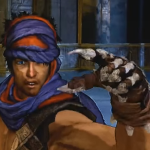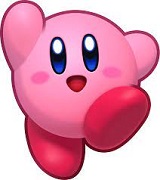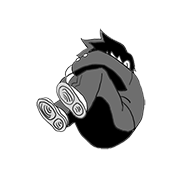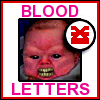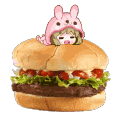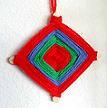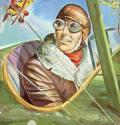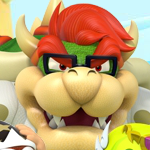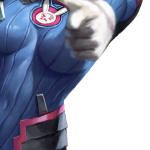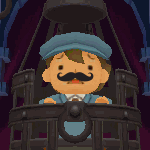|
Batman doesn't kill people.
|
|
|
|

|
| # ? May 29, 2024 09:13 |
|
The Sharmat posted:At the risk of making Batman insane? (Or, well, more insane)
|
|
|
|
I'm not a huge fan of his readings of the episodes but I think the Nostalgia Critic, in his Last Airbender vlogs, broke down why he was OK with the whole rock thing. It was basically the universe wanting balance again. Given all the otherworldly and spiritual help Aang received over the course of the series, it's not too much of a stretch to buy in to. That's kind of how I rationalized it too but I also see where people who hated that come from.
|
|
|
|
Aces High posted:while The Fortuneteller is definitely skip able it has one of my favourite Sokka exchanges: The answer is probably spirits though.
|
|
|
|
Quantum Finger posted:I have to say that I don't think the underlying messages of Korra, especially the unintentional ones it gave off during S1 regarding benders vs non-benders, are good for kids. I'm really admiring ATLA for it's themes and the way the story makes my son think about good and evil. Korra doesn't have the same stuff, imo... but I'm looking forward to watching the whole thing once it's over. Every season (except for 3, which is a mess where the writers are weepily licking their wounds and making jabs at their critics) goes like this: there are people in society who value such and such thing--equality between benders and non-benders, spiritualism, freedom, destroyed and backward nations recovering from tragedy and progressing past monarchy--and they are initially visually represented by supporters within Republic City. These people are just sort of milling around the streets all day looking for bad ideas to follow apparently; none of them has a backstory. This is the show's image of the masses--nameless crowds without real lives or needs who are driven by their convictions and easily led astray by anyone claiming to support their values. Next, a figure for them to rally around is shown. This figure never attempts to achieve goals through diplomatic or peaceful means, and always quickly goes to force and intrigue. No explanation for this is ever given directly, though the charitable implication is that they are incredibly powerful and therefore believe the best way to get what they want is to use that power unilaterally (unlikely, though, since it conflicts with the idea that Amon's grievances aren't correct in the long run). The less charitable but more viable explanation is that it is the very purity of the values they claim to champion that necessarily draws the ambition of unscrupulous men and clouds their judgment with their intoxicating righteousness--a popular trope among the more reactionary branches of liberalism. Anyway these are the show's representations of leaders who challenge the (obviously good, and just) power system that controls the world. Such leaders are driven by their visions of what could be, which causes them to ignore other considerations, even to their obvious strategic detriment in several cases. Surrounding them are a few followers/allies who do have names and backstories, which show why they have a personal attachment to the leaders and their ideas, but always in a way that heavy-handedly implies that their reasoning is impaired by the strong emotions associated with their past experiences. These are there to "humanize" the villains without actually making them sympathetic. Finally, these bad leaders are defeated by the show's good guys, who are broken up into the sources of moral wisdom (Jinora, Tenzin, the Beifong sisters plus Opal, Mako, anyone from the old team avatar, irrespective of what their roles in ATLA were, etc.) and the others, who are sort of hapless comedy/shipping pieces. The moral sources have the significant characteristic of not arriving at correct conclusions through knowledge, logic, or intelligence, but rather are either good because of innocence and moral purity (the girls) or because a lifetime of experience in "the real world" of fighting wrongdoers gives them instincts that make them seem grumpy or mistrustful or outright bigoted but in fact gives them extrasensory detection of evil. So goodness comes from either lack of contact with social struggle, or being a veteran of fighting on the right side. It's the opposite of a Run the Jewels line I like: here, the vow to seek vengeance on the vicious becomes a vision, the vision gives us the villain, the villain creates conditions requiring intervention. All that would be weird enough if not for the fact that the show's political order (and the cosmology that supports its legitimacy) are unbelievably hosed up when you put it in real world terms. The present world leadership are a god living in the heir to a tribal monarchy, the royal parents of that heir, the son of the god's previous vessel, the daughter of a monarch who seized the throne from a sibling with the help of the previous vessel, and a political body set up by the previous vessel. They were about to install a puppet ruler on the Earth Kingdom throne, thus completing an unprecedented centralization of world power and realizing a major aspect the Fire Lords' project of a single world empire united under a virtually all-powerful leader who knows what's best for everyone. And they've deliberately gone and set it up so that it is literally impossible to oppose this without supporting "fascism." And it's impossible to support the idea that bending is a dangerous thing that normal people need protections against without supporting attacks on innocent people. And a desire to preserve cultural traditions from globalization is smeared with suspicion about authoritarian theocracy, which in turn is always deceived by evil spirits. At least they left open the possibility to support freedom from monarchy without supporting a grotesque caricature of revolutionary anarchism, but that only seems to be because the system in Republic City exists as the only acceptable improvement. An amazingly contrived moral universe constructed for the purpose of advocating for an eternal social peace within the status quo represented by Republic City, i.e. modern Western style liberal capitalist rule. And to be honest, that's why I'm still watching it. It's like a modern liberal version of the hosed up moral universes of shows like 24 or I guess Homeland is today's copy of the same world where everything is a didactic morality play about the necessity of our brutality and the irredeemable nature of our enemies. And well, if you've never gotten silly on an intoxicant of choice and watched something like that to marvel at the absurdity of the premises and the gleeful pride the producers apparently take in their creation, you're missing out.
|
|
|
|
this allusion meant posted:And to be honest, that's why I'm still watching it. It's like a modern liberal version of the hosed up moral universes of shows like 24 or I guess Homeland is today's copy of the same world where everything is a didactic morality play about the necessity of our brutality and the irredeemable nature of our enemies. And well, if you've never gotten silly on an intoxicant of choice and watched something like that to marvel at the absurdity of the premises and the gleeful pride the producers apparently take in their creation, you're missing out. You probably should not be watching a children's show and analyzing it in the same breath as 24. Your analysis is not 100% wrong but it is missing actual context and attributing intent to creators who are functioning under the requirements of network television.
|
|
|
|
That was a hell of a post though. I couldn't look away.
|
|
|
|
I understand my concept of how to have fun while watching cartoons is not very common but I assure you it is hilarious to me and can be hilarious to you as well.
|
|
|
|
this allusion meant posted:I understand my concept of how to have fun while watching cartoons is not very common but I assure you it is hilarious to me and can be hilarious to you as well. I'm sure it's hilarious to you but when you start trying to attribute intent, especially negative and (in your word) evil intent to the creators without the context it makes you look kind of like a dick at best. I enjoy analyzing (and over-analyzing) stuff too but taking that to the direction of assuming the creators of a children's television show are smug and malicious is a bit much.
|
|
|
|
Have you heard that the author is dead? Could've swore it was on the news. e: sorry, this is a joke. I'll make a real response.
|
|
|
|
Yeah over-analysis is a fun hobby in of itself, and often entertaining! But its dickish when you actually use it to ascribe moral judgements on people. e: I also fully support 'death of the author' but that does I believe means if your actually distancing your analysis from authorial intent then likewise you cannot use it to critique the author.
|
|
|
|
this allusion meant posted:I understand my concept of how to have fun while watching cartoons is not very common but I assure you it is hilarious to me and can be hilarious to you as well. I can respect this. I'm enjoying the show anyway though so I don't have to go to these lengths to enjoy it.
|
|
|
|
this allusion meant posted:Have you heard that the author is dead? Could've swore it was on the news. Death of the author refers to the work itself. This is in fact a fairly important part of death of the author, thus the whole "death of the author" part. You're free to do all the analysis of the work you want. When you start applying it to the creators you've left the realm of death of the author. The Sharmat posted:I can respect this. Well, Avatar and Korra both, like many children's show, have fairly uncomfortable undertones because of the story they are trying to tell. Both because of the focus on targeting kids/teens and because of the limitations of network television, they rarely can approach subjects with the subtlety they deserve and often in the service of one message they also will (intentionally or unintentionally) create one which is uncomfortable. Harry Potter, to use a safe example, is about heroic good people fighting against racism, social inequality and Literally Wizard Hitler. However in the process of the story it suggests that sometimes torture is okay, that people who disagree with your methods are always bad, and that a massive divide between haves and haves nots is not only good but necessary and that the have-nots will exploit or destroy the haves if they find out about them. You can completely read some fairly terrifying stuff into Harry Potter if you analyze it on that level. However some of that is a side effect of beginning as a simple black-and-white morality tale, some of it is the target audience and some of it is just completely unintentional. JK Rowling probably doesn't actually believe some of the things that you can read out of Harry Potter and it's probably not worth attributing that to her. It becomes even more muddled in stuff like television shows where multiple authors are involved. Even with the overall context of the season laid out by a head writer, the individual episodes can reflect different and sometimes contradictory things. Trying to attribute intent to the creators in that case is kind of pointless without them actually speaking about it. ImpAtom fucked around with this message at 02:33 on Dec 7, 2014 |
|
|
|
Non-joke response: I don't think they see themselves as malicious, I think they honestly have a liberal value system that places the western political order above alternatives. I don't think that because of anything specific to the work necessarily, but simply because that's what the overwhelming majority of people who are well-off and well-connected enough to have access to the institutions of mass media in our society actually believe (since that's what a less overwhelming majority of all people in our society believes, and our institutions do a decent job of filtering out nutjobs who think capitalism is ecologically and socially unsustainable, or that western domination of the international order holds back positive developments in societies resisting that domination, and other kooky conspiracy stuff). I don't think they've deliberately made a morality play out of these values, but rather are trying to create a children's story with good and evil that they consider "non-ideological," and these values have simply bled in organically as a consequence of that. The more extreme implications of the moral universe they've created aren't quite deliberate, but happen to follow anyway, because they're unwilling to consider checking for these kinds of problems, due to a combination of reasons that include both accidental oversights and limited time constraints on the one hand and a subconscious lack of interest in questioning their own moral positions on the other. Irrespective of intent, though, at least some of the less extreme implications are definitely there, and countless posters throughout discussions on the show throughout have pointed them out, and in fact the acknowledgements made by Toph and Zahir in the current season about these things are a reflection of the extent to which these issues have come up in the criticism directed at the show. It's not like I'm the first one to say these things. If my post seemed to be implicating the writers and producers too personally or condemning them as individuals, that's an artifact of my own sloppy writing, and I'm sorry for the misunderstanding. e: to be fair tho, I don't think the creators of 24 were that conscious about what they were doing, either. Black-and-white worldviews like the one that are represented by that show are inherently convenient for action shows, and at the time I think a lot of people really believed that the world might work like that. I don't think there are very many shows with evil messages that put them in there directly, and in fact it's the shows with good messages that are usually the most deliberately and openly didactic, while the evil messages are generally the ones that most strongly insist on neutrality or objectivity or showing things as they are. e2: punctuation fixes this allusion meant fucked around with this message at 02:44 on Dec 7, 2014 |
|
|
|
this allusion meant posted:Non-joke response: That's a perfectly fair argument. I read more accusation into your post than you intended and I apologize for that.
|
|
|
|
I went back and re-read it and I definitely shouldn't have used "deliberately" or "for the purpose" in the second to last paragraph, and there's some more minor things of that nature. Oh well, not about to start doing multiple drafts for this sort of thing.
|
|
|
|
JT Jag posted:What if Batman could make the Joker sane by touching him though I don't think taking away his fire bending really rendered Ozai a non-threat though. Realistically, he is still the legal ruler of the Fire Nation. Every general would not have just followed Zuko instantly; if Ozai was alive there should have been a civil war.
|
|
|
|
Rutibex posted:I don't think taking away his fire bending really rendered Ozai a non-threat though. Realistically, he is still the legal ruler of the Fire Nation. Every general would not have just followed Zuko instantly; if Ozai was alive there should have been a civil war.
|
|
|
|
SpiderHyphenMan posted:Ozai wasn't Fire Lord, he was Phoenix King, a title that had no real meaning after the whole "BURN EVERYTHING" plan failed. He named Azula Fire Lord, who lost the title when she cheated in her duel with Zuko. That may have worked in some kind of law court; but realistically the loyalty of generals to their Fire Lord isn't going to just disappear because of a legal technicality. Not to mention the Fire Nation had been at war for 100 years. Pretty much everyone with any kind of power in the nation would be in the business of imperialism: regional administrators of conquered territories, generals, arms manufacturers, etc. Lots of the powerful people in the Fire Nation would have a very powerful incentive to want to back Ozai and continue the conquest.
|
|
|
|
In the comics there's been a couple minor appearances of an underground rebel group of Ozai supporters led by Mai's father. Which I think is going to be the focus of the next comic trilogy. It' also been shown that Zuko has had a number of assassination attempts that his Kyoshi Warrior bodyguards have had to deal with. Gruckles fucked around with this message at 05:18 on Dec 7, 2014 |
|
|
|
In addition, it's been mentioned (I believe in the artbook?) that duels and firebending ability are very important to maintaining honor and gaining power among the elite in the Fire Nation. Royals are supposed to be able to initiate Agni Kais at any time in order to deal with a perceived slight. I don't think Ozai would be particularly attractive to such a militant society without his bending, especially when he was humiliated in his fight with Aang.
|
|
|
|
I think post-war Fire Nation civil unrest and political skullduggery would make an excellent topic for the comic series, but wouldn't jive well with their target audience. Being realistic about the machinations of those attempting to maintain their status quo after the war would just be boring to kids, and to simplify it down to their level would be trite and  -worthy at best. -worthy at best.As much of a dumb goon as it makes me sound like to say this, I wish the Avatar world hadn't been something aimed at kids. But then, I'm always a fan of gritty.
|
|
|
|
Are LoK and the comics actually aimed at kids? I get the impression they're more aimed at young adults and older teens who were fans of the original series, considering the ages of the main characters in those works. Since, empirically, people don't really seem to change their convictions after age 30 or so, it's actually works targeted at this demographic where these sorts of subtle details that characterize political and social struggles are most important. Stuff aimed at people past that age range is generally just preaching to the converted.
|
|
|
|
Serella posted:I think post-war Fire Nation civil unrest and political skullduggery would make an excellent topic for the comic series, but wouldn't jive well with their target audience. Being realistic about the machinations of those attempting to maintain their status quo after the war would just be boring to kids, and to simplify it down to their level would be trite and While I do shudder to think for awful Avatar would be if it was as grimdark as people who call for it to be Game of Thrones level violent; I would be happy to see it at the maturity level of many young adult series, like the Hunger Games.
|
|
|
|
ATLA I feel, did what it set out to do, which was be a quality kids adventure show.
|
|
|
|
this allusion meant posted:Are LoK and the comics actually aimed at kids? I get the impression they're more aimed at young adults and older teens who were fans of the original series, considering the ages of the main characters in those works. Since, empirically, people don't really seem to change their convictions after age 30 or so, it's actually works targeted at this demographic where these sorts of subtle details that characterize political and social struggles are most important. Stuff aimed at people past that age range is generally just preaching to the converted. LoK is absolutely aimed at kids. You can make arguments about what the writers want to do but the target audience was explicitly stated to be kids and the show is specifically crafted around that. That is why it has characters like Meelo and the other Airbender kids and a lot of other elements. It isn't just kids. Nick absolutely wanted the original Avatar audience back too. But Nick wanted to sell toys and appeal to their intended Saturday morning cartoon audience.
|
|
|
|
If that's what the corporate strategy is I won't argue with that, but I don't think Meelo and the kids are very appealing to kids. Their humor is generally relatively mature jokes about foibles of adults, put in the words of children for comic effect--I can't imagine someone under the age of ten actually appreciating more than a very, very thin surface layer of, for example, the whole "Korra won't recognize me as Meelo the MAN" scene.
|
|
|
|
this allusion meant posted:If that's what the corporate strategy is I won't argue with that, but I don't think Meelo and the kids are very appealing to kids. Their humor is generally relatively mature jokes about foibles of adults, put in the words of children for comic effect--I can't imagine someone under the age of ten actually appreciating more than a very, very thin surface layer of, for example, the whole "Korra won't recognize me as Meelo the MAN" scene. You can make an argument about Season 4 but the earlier seasons absolutely had those characters existing for the humor of children. Meelo wasn't fartbending for adults. Humor can also exist on multiple levels. Sometimes characters just acting silly is amusing to kids, even if the specifics are lost on them. (How many kids enjoyed Rocko's Modern Life without getting the vast majority of the jokes, for example.)
|
|
|
|
That's true. My memory of the earlier seasons is a bit dull, due in part to aforementioned preference for watching the show while under the influence.
|
|
|
|
Well, I dunno about you guys, but I watch Avatar for magical kungfu. Its action scenes aren't dragged down by painful anime things, it actually resembles martial arts which is really cool, and they're really good about making fighting styles an extension of the personality. This show could be nothing but constant brawls with minimal setup and I would watch it. If I had to name the shittiest aspect of the show right now, it'd probably be dialogue. Dialogue is really stilted in parts, but there are some characters that the writers just seem to get, and those are usually the most flawed ones. Compared to the somewhat embarrassing dialogue most of the cast has, characters like Lin (except S2), Toph, Tenzin (when he's not exposition) and Zaheer are fun just listening to. The weird dialogue feels to me like a remnant of a kids' show that didn't quite grow up yet; not quite natural. Too often, it seems like some lines are more written in service of the plot rather than as something the character would say. That's why it feels like some of the aside lines do a much better job at actually resembling talking - like the few lines we got from the villain cast of S3. Sometimes, I think this show takes its plot too seriously. Also, I need to point out how honestly impressed I am with Korra's arc so far. Several times, I was genuinely surprised how genuine some of the things she said in S4 felt, as in: yeah, that totally makes sense for her to say. It's a pretty good depiction of depression/trauma, and the frustration feels real. That confrontation with Zaheer in particular was stellar (if a little short). I'm a little disappointed noone besides Toph really played into that, but oh well. This is one of the areas where it really feels like good writing.
|
|
|
|
The Sharmat posted:I'm pretty sure I would have hated the Aang vs. Ozai asspull as a kid too because I always wondered why they didn't just kill the Joker instead of putting him in Arkham Asylum all the time. Speaking of... https://www.youtube.com/watch?v=PfH3bDPNGHw
|
|
|
|
this allusion meant posted:
EDIT: Never mind, you address that latter on. Wow  Rosalind posted:

Charlz Guybon fucked around with this message at 15:37 on Dec 7, 2014 |
|
|
|
ShadowCatboy posted:Speaking of... Or https://www.youtube.com/watch?v=1byycwl8qgc To get back on topic, Hayden Childs at the AV Club also gives what I think is the best explanation why, mythology-wise, Aang had to defeat Ozai in the exact way that he did: http://www.avclub.com/tvclub/avatar-the-last-airbender-sozins-comet-72160
|
|
|
|
Just to throw another 2 cents into the pile, I'd just like to point out that there are certain films aimed at children which don't necessarily present a simplistic, black and white moral dichotomy. Case-in-point: many Hayao Miyazaki movies. In most of them there either isn't a villain at all, or the antagonist turns out to just have a different point of view or their own motivations that happen not to coincide with the protagonists. In any case, they are often redeemed, or at least given their fair time on screen to demonstrate their points.
|
|
|
|
this allusion meant posted:LoK's moral system is outright evil. It's about establishing a clear hierarchy of concepts of the good, with virtue over values, and values over vision, and establishing the inherence of each to roles of different actors within the political order. I agree. In Korra's defence I think it's an unfortunate artefact of using villains as flawed copies of the hero and not giving enough time to explore why they fail as heroic figures. The show accepts that these characters' various ideologies are necessary and good (in 'moderate' amounts, of course), but doesn't develop it beyond that. Season 3 does it best, where Zaheer the anarchist is defeated not by Korra, but by 'good' practitioners of his philosophy (the airbenders, the metalbenders) and, ultimately, his own hypocrisy.
|
|
|
|
DrSunshine posted:Just to throw another 2 cents into the pile, I'd just like to point out that there are certain films aimed at children which don't necessarily present a simplistic, black and white moral dichotomy. Case-in-point: many Hayao Miyazaki movies. In most of them there either isn't a villain at all, or the antagonist turns out to just have a different point of view or their own motivations that happen not to coincide with the protagonists. In any case, they are often redeemed, or at least given their fair time on screen to demonstrate their points.
|
|
|
|
Where do you keep copy pasting these from
|
|
|
|
TheKingofSprings posted:Where do you keep copy pasting these from tam is legit. And it's kinda creepy.
|
|
|
|
Yeah this is pretty weird.
|
|
|
|

|
| # ? May 29, 2024 09:13 |
|
I'm sure plenty of people have thoughts along these lines when watching it but 1) aren't motivated to write it up and post it on the internet afterward and 2) maybe are less familiar with the words to express their thoughts. But I'm really good at both for unrelated reasons and this is a fun outlet for me.
|
|
|


